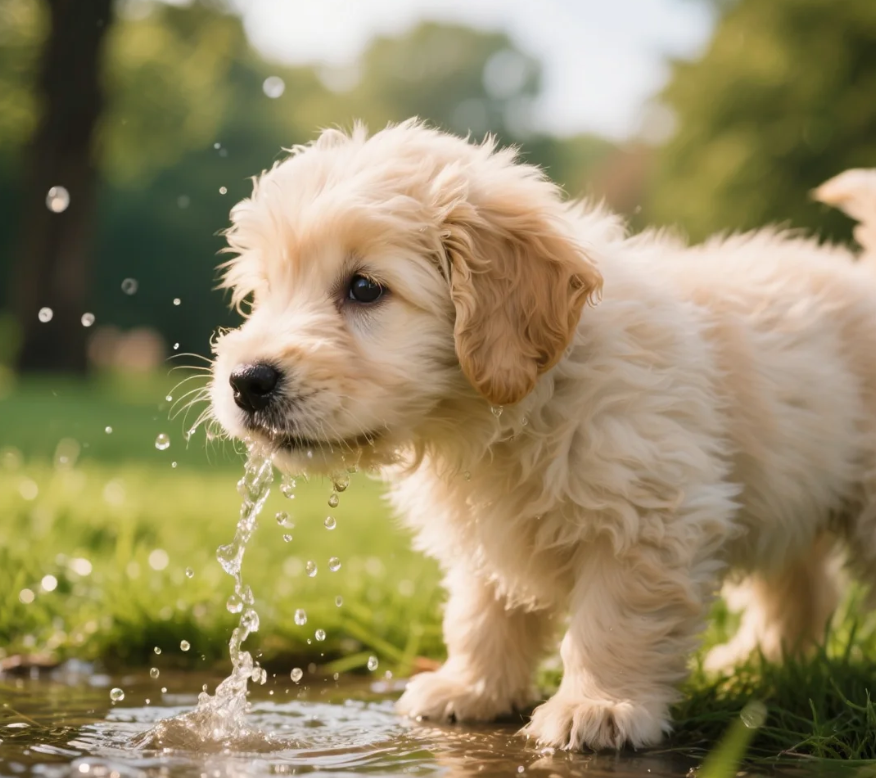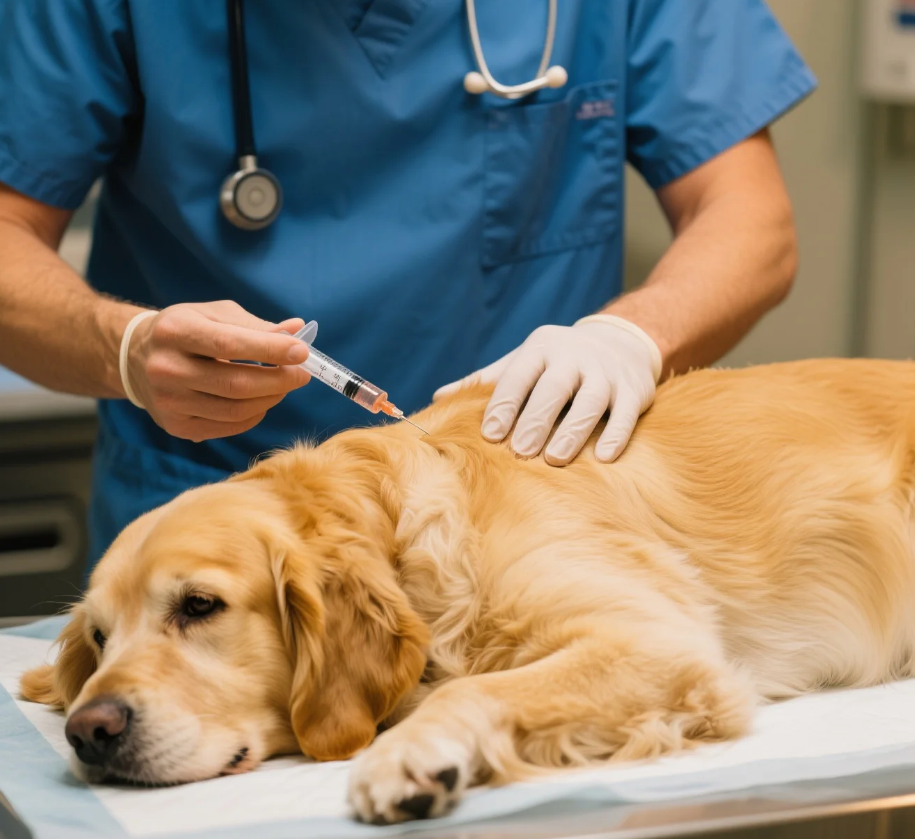You notice the water bowl is empty again—didn’t you just fill it? Your pup seems unusually thirsty, and you can’t help but wonder: why is my dog drinking so much water?
For many pet parents, this moment sparks both concern and love. Dogs can’t tell us when they’re not feeling well, so changes in habits—like drinking more than usual—become powerful clues. Sometimes, it’s completely normal. Other times, it’s their way of signaling that something deeper may be going on.
This guide will walk you through how much water is normal, common causes of excessive thirst in dogs, when to worry, and how to take the best care of your furry friend.

Before you panic about why your dog is drinking so much water, it helps to know the baseline:
Rule of thumb: About 1 ounce of water per pound of body weight daily. A 40-pound dog needs around 40 ounces.
Diet influence: Dogs eating dry kibble drink more compared to dogs on canned or fresh diets.
Weather and exercise: Hot days and long walks naturally increase thirst.
Age and health: Puppies, nursing moms, and senior dogs often drink more.
If your dog’s water intake suddenly spikes or stays high for days without an obvious reason, that’s when it’s worth asking seriously: “Why is my dog drinking so much water?”
After a run, hike, or a day in the sun, dogs pant to cool off and lose fluids, which they quickly replace by drinking more water.
Always carry a collapsible water bowl when you’re outdoors with your pup.
Some foods naturally increase thirst:
If you’ve recently changed food, watch to see if thirst levels normalize after a few days.
If you’re asking “why is my dog drinking so much water all of a sudden?” after starting medication, check the label or ask your vet. Common culprits include:
Excessive thirst (polydipsia) paired with frequent urination is often linked to diabetes in dogs.
Other signs:
Left untreated, diabetes can be life-threatening, but many dogs live full lives with insulin therapy and diet management.

Dogs with Cushing’s disease often drink and urinate more, gain a pot-bellied shape, and lose patches of fur. This condition is more common in older dogs and requires veterinary testing for diagnosis.
Healthy kidneys concentrate urine and conserve water. When they fail, urine becomes diluted, forcing dogs to drink more.
Other symptoms include vomiting, bad breath, or weight loss. Chronic kidney disease can’t be cured, but with early treatment, many dogs live comfortably.
If your dog is drinking too much water and also shows signs like yellow gums, vomiting, or diarrhea, the liver may be involved. These cases require prompt veterinary care.
A UTI may cause frequent urination, straining, or cloudy urine, leading to increased drinking.
Related read: Why Is My Dog’s Pee Yellow? 7 Causes and How to Help.
Call your vet if:
Your vet may ask you to measure daily intake—a simple step that helps detect health issues faster.
For pet parents, asking “why is my dog drinking so much water?” often comes with worry. But it also shows something beautiful: your attentiveness.
Dogs rely on us to notice the little things. That extra trip to the water bowl may be their only way of saying, “Something feels off.” By paying attention, you’re not only protecting their health—you’re showing love in its truest form.
Can a dog drink too much water?
Yes. While hydration is essential, excessive water intake can dilute electrolytes and sometimes indicate an underlying issue.
Why is my dog suddenly thirsty at night?
Nighttime thirst may point to conditions like diabetes, kidney disease, or a UTI. If it continues, schedule a vet check.
Is it normal for puppies to drink a lot of water?
Yes. Puppies are growing fast, burn more energy, and often drink more than adult dogs. Still, sudden changes deserve attention.
Should I restrict my dog’s water if they drink too much?
Never. Restricting water can worsen dehydration or mask symptoms. Always provide free access and consult your vet instead.
Most of the time, extra drinking is harmless—just your pup cooling off or adjusting to a new diet. But persistent, unexplained thirst should never be ignored.
By observing patterns, keeping track of intake, and asking “why is my dog drinking so much water?”, you’re doing what every caring pet parent hopes to do: protect and nurture the loyal friend who gives you unconditional love.
Your awareness today could make all the difference in their tomorrow.
One Response